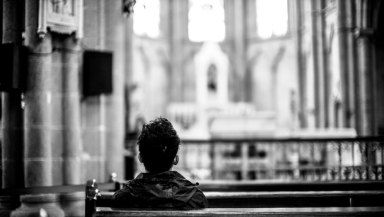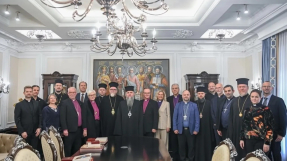
Retired Anglican bishop Michael Marshall has become the latest Christian leader to say that there are signs of revival in the country, adding that the Church must seize the opportunity to bring more people to Christ.
Earlier this year the Bible Society published a research paper called The Quiet Revival, that suggested increasing numbers of people in Britain are attending church. Young people, particularly men, appear to be making up significant numbers of the new churchgoers.
Anecdotal evidence from up and down the nation appears to back up the research, with many churches reporting record numbers of attendees at Easter. Nicky Gumbel, of Holy Trinity Brompton and Alpha Course fame, said that HTB had recently experienced much bigger turnouts than would normally be expected at this time of year.
“Something is happening”, Gumbel told the Evangelical 360° podcast.
Similar tales were told after the assassination of conservative Christian activist Charlie Kirk in the US, with reports of many young people being inspired to go to church.
Reflecting on this and on his 50 years as an Anglican bishop, Marshall said the evidence does seem to support the claims of a Quiet Revival.
Pondering the possible factors for this apparent renewed interest in Christianity, he wrote in Anglican Ink, "What drives this quiet return is not nostalgia for a fading tradition but disillusionment with false promises.
"The 'tin gods' of consumerism, careerism and technology have failed to provide lasting meaning."
He said that history shows that moments of apparent weakness in the Church often precede astonishing renewal.
“In 1833 the historian Thomas Arnold declared: ‘The Church of England as it now stands no human power can save.’ Yet that same year John Keble’s Assize Sermon in Oxford launched what became known as the Oxford Movement," he said.
He added, "Out of crisis came growth.”
Marshall called on the Church to remember its apostolic identity and mission, warning that these were often forgotten in a preoccupation to preserve institutions.
Quoting St Catherine of Siena, Marshall said the church should “become again what it was created to be”. Only then, he argued, could it “model hope and purpose in a world desperately short of both”.













